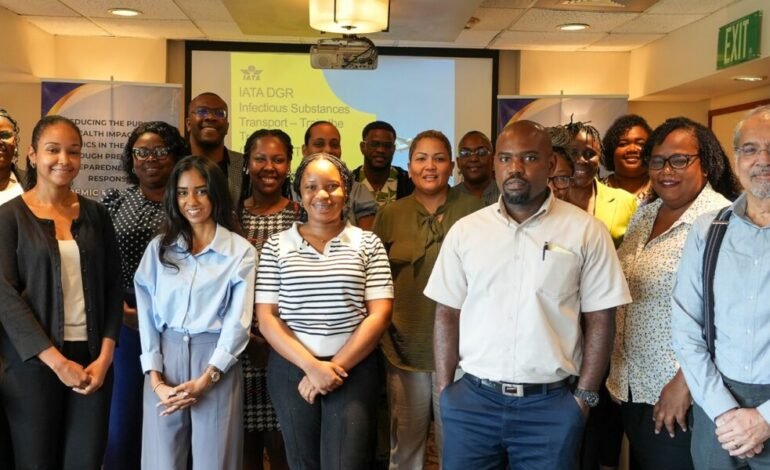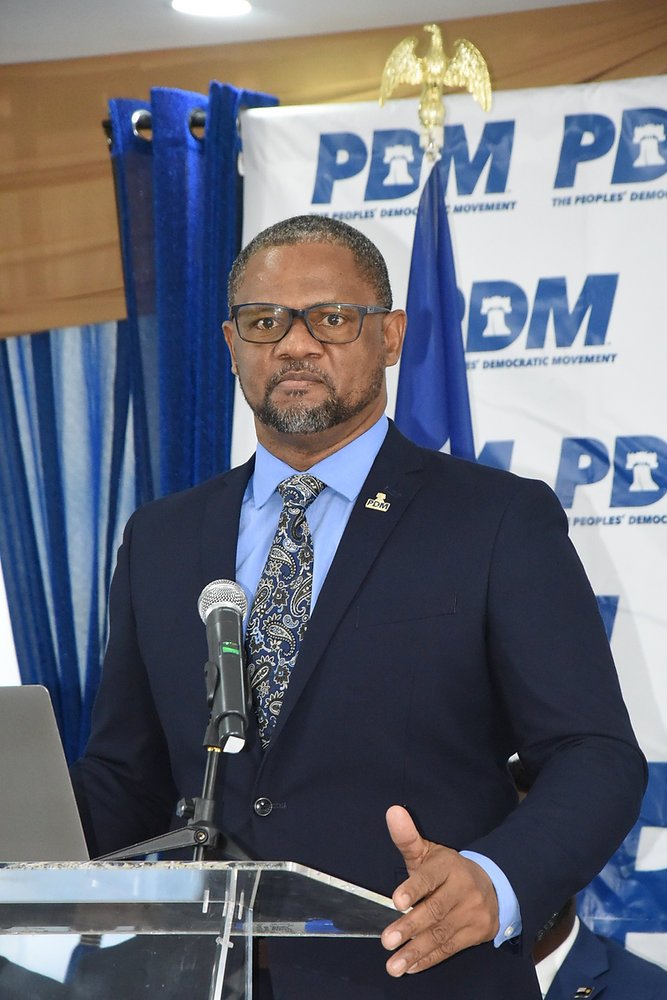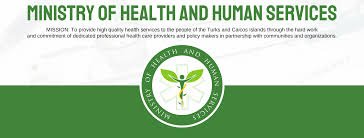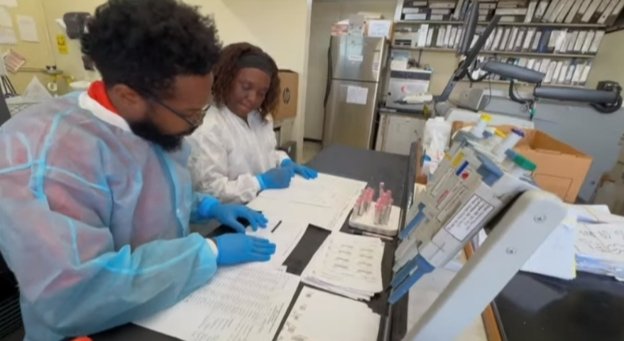CARPHA Hosts Regional IATA Infectious Substances Transport “Train-the-Trainer” Workshop with the Pandemic Fund’s Support

Port of Spain, Trinidad and Tobago – The Caribbean Public Health Agency (CARPHA) concluded its Train-the-Trainer Workshop on the Safe Transportation of Infectious Substances today. The workshop, conducted by the International Air Transport Association (IATA), was supported by the Pandemic Fund grant, with CARPHA serving as the Executing Agency and the Inter-American Development Bank (IDB) as the Implementing Entity.
(IDB) as the Implementing Entity.
Fourteen (14) CARPHA Member States (CMS) participated in this initiative, which aimed to strengthen regional capacity to meet international safety standards for shipping infectious substances. The training provided participants with essential theoretical knowledge, interactive discussions, and practical exercises to achieve IATA certification as trainers. These certified trainers will now be well-positioned to serve as national trainers and advisors in biosafety and safe transport protocols, ensuring safer practices across the region.
Dr. Lisa Indar, Ad. Interim Executive Director of CARPHA, highlighted the significance of the initiative: “As a region, we must ensure that the transportation of infectious substances meets international safety standards to protect our public health systems and communities. This workshop builds on CARPHA’s commitment to developing a robust network of certified trainers who can implement and sustain best practices in their home countries. We are grateful for the training supported by the Pandemic Fund project, enabling us to take key steps in pandemic preparedness and response.”
The program not only addressed gaps in Certified Infectious Substance Transport Training within CMS, but also established mechanisms for monitoring and evaluating the trainers’ impact in their respective countries. Participants are expected to conduct infectious substances transport training within the first quarter of 2025, ensuring the rapid application of their certification.
Speaking at the opening ceremony, Dr. Horace Cox, Acting Director of Surveillance, Disease Prevention and Control at CARPHA, remarked: “The effectiveness of our public health response hinges on having a cadre of professionals who can translate this critical knowledge into action at the country level. This program empowers Member States to strengthen their capacity to handle infectious substances safely and securely, which is a cornerstone in bolstering regional health systems and pandemic preparedness and response.”
To ensure the sustainability of the training program, CARPHA is also establishing mechanisms for ongoing feedback and continuous improvement, ensuring that the program remains dynamic and responsive to the needs of the Member States and trainees. These efforts promise to enable better tracking of training activities and contribute to the long-term sustainability of the training program. This initiative is part of CARPHA’s broader mission to enhance laboratory capabilities, improve surveillance systems, and ensure public health security across the Caribbean. By creating a robust network of self-sufficient trainers in its Member States, CARPHA aims to strengthen the capacity for safely shipping infectious substances and enhance regional public health resilience.
About the Pandemic Fund Project:
The Caribbean Public Health Agency (CARPHA), the sole regional public health agency, is the Executing Agency for the Pandemic Fund (PF) Project: RG-T4387, with the Inter-American Development Bank (IDB) as the Implementing Entity. The goal of this Project, which spans from 2024 to 2026, is to Reduce the Public Health Impact of Pandemics in the Caribbean through Prevention, Preparedness, and Response (PPR). The objective is to support the reduction of the public health impact of pandemics in the Caribbean by building pandemic PPR surveillance and early warning systems, laboratory systems and workforce capacity, regionally at CARPHA and at country levels. This will reduce the transboundary spread of infectious diseases and improve regional and global health security. CARPHA is the beneficiary of the PF project and CARPHA Member States are the participants.
(PF) Project: RG-T4387, with the Inter-American Development Bank (IDB) as the Implementing Entity. The goal of this Project, which spans from 2024 to 2026, is to Reduce the Public Health Impact of Pandemics in the Caribbean through Prevention, Preparedness, and Response (PPR). The objective is to support the reduction of the public health impact of pandemics in the Caribbean by building pandemic PPR surveillance and early warning systems, laboratory systems and workforce capacity, regionally at CARPHA and at country levels. This will reduce the transboundary spread of infectious diseases and improve regional and global health security. CARPHA is the beneficiary of the PF project and CARPHA Member States are the participants.
The PF was approved at the highest level by the Council for Human and Social Development, as well as by CARPHA’s Executive Board and other stakeholders, including Chief Medical Officers. This is a regional 3-year project (2024-2026). The public signing of Technical Cooperation Agreement to implement the project was on December 14, 2023.








